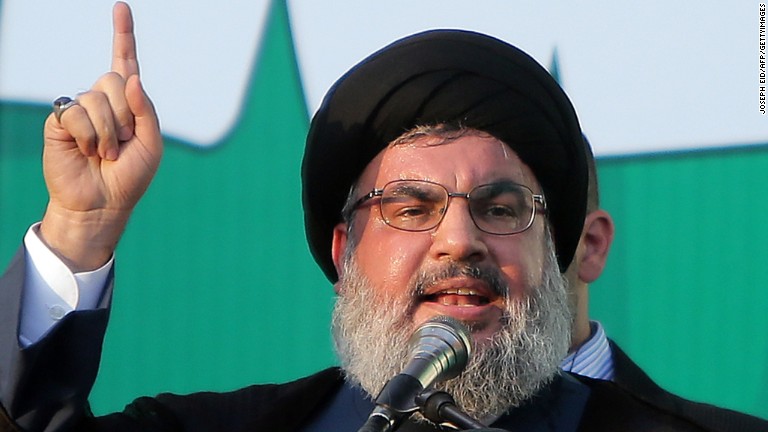Alwaght- The recent Israeli attacks to test Hezbollah military readiness met firm response from the Lebanese movement. The attacks, certainly carried out to see how Hezbollah would respond, showed that Tel Aviv dream of fishing in the Lebanon's troubled waters went nightmarish. Shortly after Hezbollah's rocket response to the Israeli attacks on Al-Sadanah, Bastarah, and Kafr Shuba, in addition to the home and regional support to the resistant movement's action, the Israeli leaders' rush to prevent further escalation revealed how the Israeli regime is vulnerable to reciprocal actions. On Friday, the Israeli Minister of Defense Benny Gantz spoke to the American Defense Secretary Liyod Austin, asking Washington to take measures for ceasefire with Lebanon.
This apparent fear of continuation of tensions has undoubtedly been a sign of receiving Hezbollah's calculated military and political messages, otherwise; of course attacking Lebanese cities would reignite the tensions with Hezbollah. Actually, it can be said that the events from Hezbollah response have come just against the Israeli expectations, surprising Tel Aviv and shattering its calculations.
Hezbollah ready to respond
Undoubtedly, one of the important messages of Hezbollah's missile response to the Tel Aviv’s new adventure against Lebanon is to show the high level of combat readiness and equipment of the resistant movement to enter the full-scale military conflict with the Israelis in case of provocation, which was well received by the Israeli military and political officials. The new Israeli cabinet, a product of political tumult and an aftermath of the 11-day war against Gaza, is not unwilling to flex its muscles to rebuild the broken prestige of the army and the hardline part of the society with showy actions against Hezbollah.
The political and economic crisis in Lebanon, which is also overshadowing the Lebanese army, pushed the Israeli regime to the illusion that due to the current predicament, Hezbollah will choose to stay away from confrontation and so it is the best chance to seriously challenge it 15 years after the Israeli defeat in the 2006 war. But in the meantime, Hezbollah's decisive response sent a message, telling Tel Aviv that the resistance's ability to defend Lebanon's borders, interests and sovereignty is in no way affected by the country's internal conditions, and that its hands are completely open to deal military blows to the enemy. Hezbollah's missile response requires a powerful basis including rich data bank, high operation capabilities, organizational power, rapid forces coordination, and a command aware of home, regional, and international conditions.
Lebanon supports Hezbollah
Another message the Israelis received is that the Lebanese are tightly united behind Hezbollah and against the Israeli violation of their sovereignty. There is no doubt that Lebanon's crisis stems from political disputes, profiteering of some parties, and also divisive meddling of the foreign actors via their minions in the Lebanese politics. At the same time, the economic crisis and the failure to form a new government have brought the public anger to its highest levels.
Such a broad gap naturally lures the Western and Israeli strategists into thinking that Hezbollah as key player has witnessed its popularity and legitimacy shrunken and that the rival groups will not back it in possible confrontation with Israel and instead press the resistant movement. But things went against their expectations. Not only has the Lebanese society unanimously voiced its support to the strong reciprocal attacks of Hezbollah in support of the national sovereignty but also various political parties, developing awareness of the country's critical conditions and the public views, condemned the Israeli attacks.
Anti-Israeli rise in the region
Yet another message that was sent to Tel Aviv and made the regime rush to prevent further escalation was the decisive and rapid support of the branches of the Axis of Resistance to Hezbollah. In addition to Yemen's Ansarullah and Palestine's Hamas, Al-Nujaba Movement of Iraq threw its full support behind the Lebanese movement, telling Hezbollah "we are ready to fight the Zionists beside the Lebanese brothers." The resistant group called Hezbollah's missile response "calculated" and expressed readiness to join the "deterrence equation" announced by Sayed Hassan Nasrallah, Hezbollah's secretary-general. The 11-day war experience reveals to what extent the a confrontation with one branch of the Resistance camp can shake the Israeli political, economic, and social stability, and thus confrontation of the camp in its entirety will have unpredictable consequences.
Additionally, the Israeli regime obviously understood that adventures against Lebanon will destroy what remains of the trivial achievements of the Arab-Israeli normalization project and more than ever reveals the depth of the Arab-Islamic aversion to any thaw with Aviv.



























